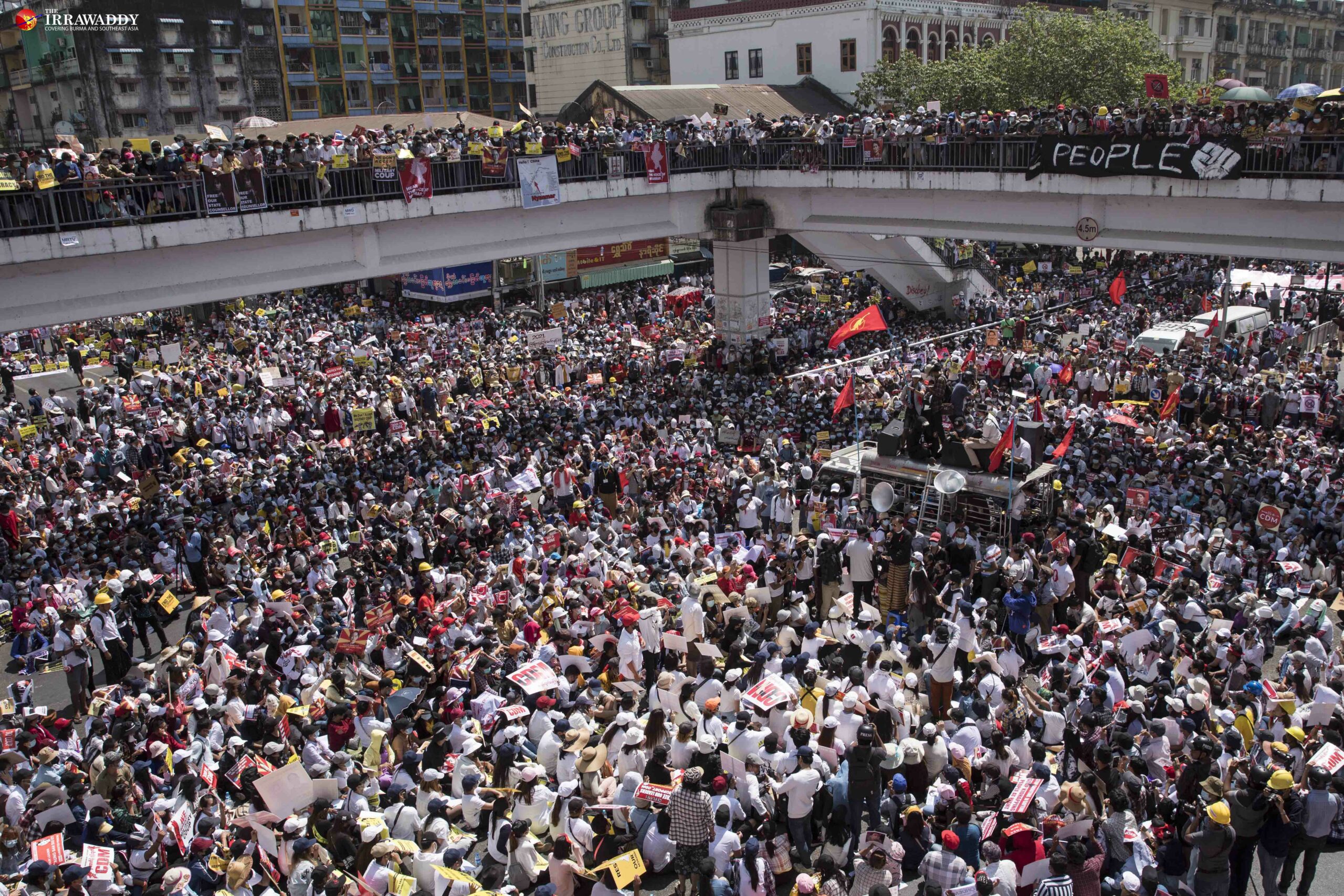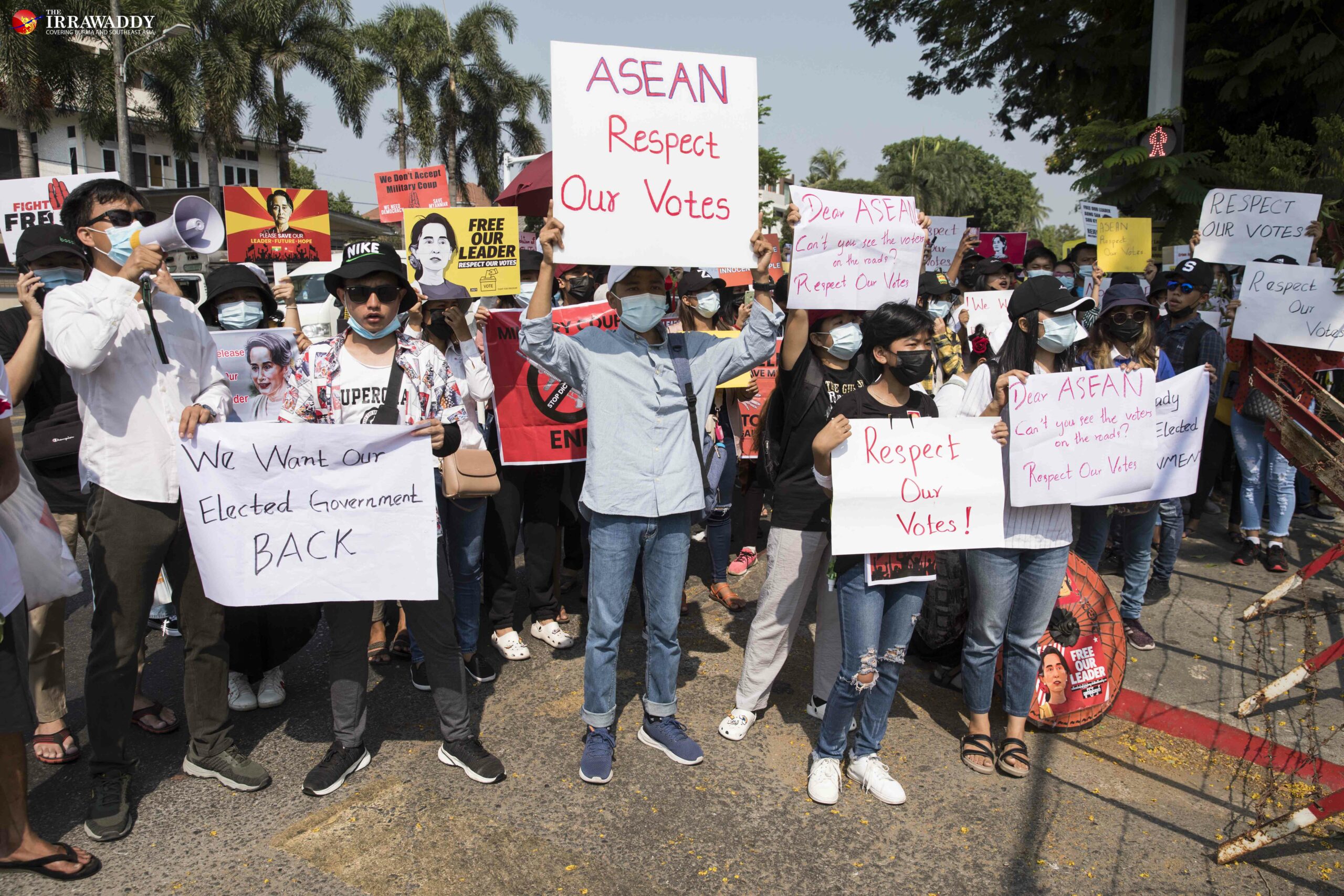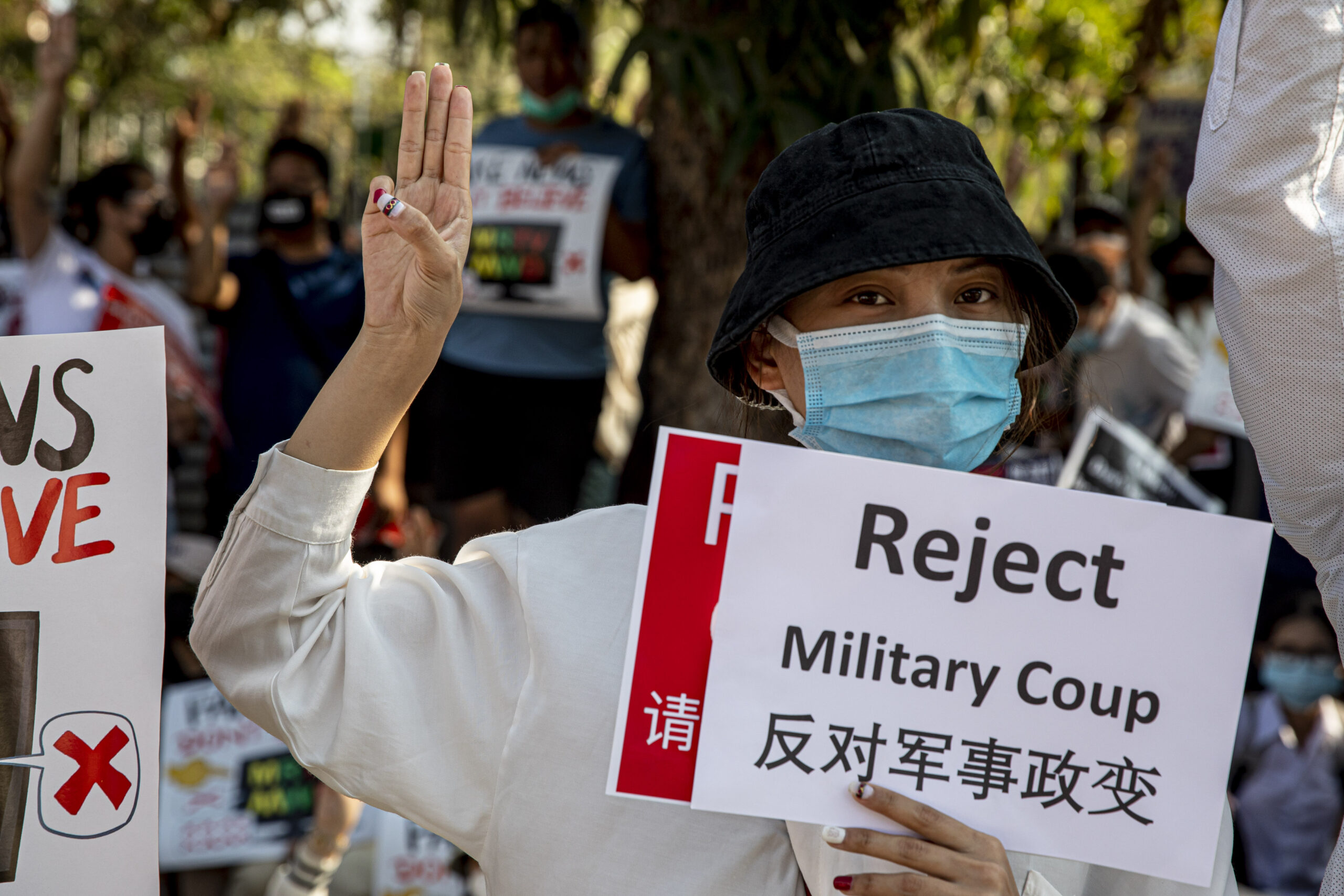More than a month ago the military junta seized power in Myanmar and now blood is flowing in the streets. However, it is inspiring to see the youth and Generation Z out on the streets opposing the coup. The sudden but robust nationwide uprising is gaining momentum in spite of the crackdown across the country, as is the Civil Disobedience Movement CDM.
It is a military coup but there is hope that the people’s will and opposition can make it fail. It is going to be a long fight and the attempted coup has still not succeeded. So what can we do to stop it?
The world is watching closely. Myanmar people who lived in the dark ages under repressive military regimes say that empty words are not enough. A cartoon drawn by a famous artist in Yangon mocked: “Don’t worry UN: We stand with you”!
This week, foreign ministers in the region urged the Myanmar military to desist from violence and respect the will of the Myanmar people; the messages were conveyed during an informal meeting of Association of Southeast Asian Nations (ASEAN) foreign ministers (Myanmar is a member of the regional bloc) on Tuesday.
Wunna Maung Lwin, the top envoy appointed by the military regime, attended the meeting.
“ASEAN wants to continue to engage and to be helpful and to be constructive wherever possible. But ultimately, the solution lies within Myanmar itself,” Singapore Foreign Minister Vivian Balakrishnan told the media after the meeting.
“The only way you’re going to get a long-term sustainable viable solution is for national reconciliation to occur, and in particular we call for the release of the President Win Myint and State Counselor Aung San Suu Kyi and the other political detainees.”
Balakrishnan stressed that Singapore has not recognized the regime as Myanmar’s government.
“We have not recognized the military leaders as the government of Myanmar,” he said. “We do recognize, however, that under the 2008 Constitution, it provides for a special role for the military as an institution in the body politic of Myanmar.”
Retno Marsudi, Indonesia’s foreign minister, said after the meeting: “Indonesia underlines that the will, the interest and the voices of the people of Myanmar must be respected.”

Last week, she was in Bangkok where Wunna Maung Lwin, Retno and the Thai foreign minister held a meeting.
Thailand, Myanmar’s closest neighbor, sharing a border of over 2,400 kilometers, is concerned with the growing instability. Thai officials are concerned with the spread of protests and the Milk Tea Alliance in the region (Bangkok saw an hours-long street protest last week, involving Thai and Myanmar people) and an influx of refugees and political activists to the border, and is apprehensively watching the growing Civil Disobedience Movement in Myanmar.
The generals in Myanmar are also counting on likeminded neighbors who can, as in the past, give them some much-needed legitimacy. Nevertheless, Myanmar’s crisis is ASEAN’s crisis and it goes beyond the national interest.
Myanmar people know that the regional grouping is not democratic; many members are semi-democracies or authoritarian regimes.
Myanmar youth who are out on the streets do not have a high opinion of ASEAN either. They ridicule ASEAN, China and Japan and many more countries and governments they think just pay lip service.
Last month, Myanmar youth held a series of protests in front of embassies including Thailand, Singapore, Indonesia, Japan and China asking them not to support the coup.
They wanted some form of intervention to bring relief from the coup and restore the status quo – to recognize the legitimate government of Myanmar.
In front of the US Embassy, some placards called for US troops to come, or for the UN to send peacekeeping forces. It is not going to happen and in reality, no foreign forces will intervene in Myanmar.
While waiting to see more concrete action from Myanmar’s neighbors, as well as the UN and the West, Myanmar people know that language matters. They may appreciate Indonesia’s position as well as the stance of Singapore, which does not recognize the regime as the government.

However, the pathetic and irrelevant ASEAN has been bruised again as Myanmar implodes. Youth and activists in the CDM movement gave ASEAN a nickname: “pha-sean”. Pha literally means a prostitute, or it can also mean cover up or shield. That’s what ASEAN, like China, has done—to provide a protective shield to repressive regimes in the past.
It is believed that more US sanctions against regime individuals and business associates are coming.
The Biden administration announced it will work with likeminded countries in the region. Singapore, one of the largest investors, is key to this approach.
Japan can also play a role in this nexus. Tokyo is Myanmar’s largest aid donor and has invested in several key strategic projects in Yangon and in the south. Japan is also seen as a counterbalance to China. More importantly, Japan trained the Myanmar military in the past and historic ties between the two are strong.
Coup maker Senior General Min Aung Hlaing is also close with Yohei Sasakawa, the chairman of Japan’s Nippon Foundation. He serves as a special envoy of the Japanese government for national reconciliation in Myanmar.
It is believed that the general has kept a line of communication with him open since the coup.
After the coup in Myanmar, China is in an awkward position now.
The Chinese ambassador, after a series of anti-China protests in front of his embassy in Yangon, told local media that the situation is “absolutely not what China wants to see.” China earlier said that the coup was “a major reshuffle”, a comment that angered people in Myanmar. What position will China take if the US and its allies take a tougher stand on the regime?
To regain respect from people in Myanmar and build a long-term relationship with the country, a crystal clear stance from Beijing on the Myanmar crisis is needed. (It is not true that Min Aung Hlaing flew to China as reported in the Bangkok Post a few days ago.)
Last week, Myanmar’s ambassador to the UN, U Kyaw Moe Tun, gave a speech calling for the “strongest possible action from the international community to immediately end the military coup, to stop oppressing innocent people, to return the state power to the people and to restore the democracy.” That ought to galvanize further action by the United States, European Union and other democracies.
Following the ambassador’s dismissal by the regime, Myanmar’s deputy ambassador to the United Nations in New York, U Tin Maung Naing, resigned on Tuesday after the military regime assigned him to replace his boss.
The UN has not explicitly stated whether it would accept a regime-appointed ambassador.
On Tuesday, the UN said it received a statement from Myanmar’s Ministry of Foreign Affairs saying U Tin Maung Naing had been appointed the interim head of the permanent mission.

The new US ambassador, Linda Thomas-Greenfield, reiterated that she was “extraordinarily moved” by the Myanmar ambassador’s statement, and commended him for his “bravery” and “compassion.” Some Asian diplomats who are willing to provide diplomatic cover to the regime said U Kyaw Moe Tun’s speech “complicated matters” in dealing with Myanmar. In fact, they failed to see who complicated the matter in the first place.
Thomas-Greenfield said the US “is committed to using our renewed engagement here in New York … [and] internationally to press the military to reverse its actions and restore a democratically elected government.”
At the UN briefing, Christine Schraner Burgener, special envoy for Myanmar, told diplomats, “It is important the international community does not lend legitimacy or recognition to this regime.”
More US sanctions against individuals are said to be coming. As in the past, the US has a role to play.
In 2011, the US appointed Derek Mitchell, who previously served in several posts in the Defense and State departments, as special envoy to Myanmar to reinvigorate US policy on the military-backed government in Myanmar.
Earlier, Kurt Campbell, then Assistant Secretary of State, had sought to engage the Myanmar regime and then opposition leader Daw Aung San Suu Kyi, and regional governments, to seek a breakthrough.
That was part of the Obama administration’s policy of making high-level contacts with the junta after reviewing its policy and change of course. Supporters called it “principled engagement” but critics called it “misguided” and unsuccessful. In any case, the US should no doubt consider appointing a special envoy or sending a delegation to the region to speak with key allies including Japan and India (both are Quad members) and South Korea. Singapore and Indonesia should be key partners in the Myanmar crisis as well.
US Secretary of State Antony Blinken said on Twitter, “We stand firmly with the courageous people of Burma and encourage all countries to speak with one voice in support of their will.”
The crisis in Myanmar also presents a window of opportunity for the Biden administration to engage regional allies, as the appointment of Campbell as the National Security Council’s Indo-Pacific affairs coordinator indicates Biden’s intent to focus more on the region and strengthen relations with allies and to counter China.
It is important not to lend any legitimacy to the junta – all over the world, we have seen that attempted coups can succeed but some fail.
You may also like these stories:
Myanmar Regime’s Appointed Envoy to UN Resigns Despite Promotion
At Least Nine Protesters Shot Dead in Three Cities in Myanmar
Myanmar Diplomat in US Refuses to Work for Military Regime
















